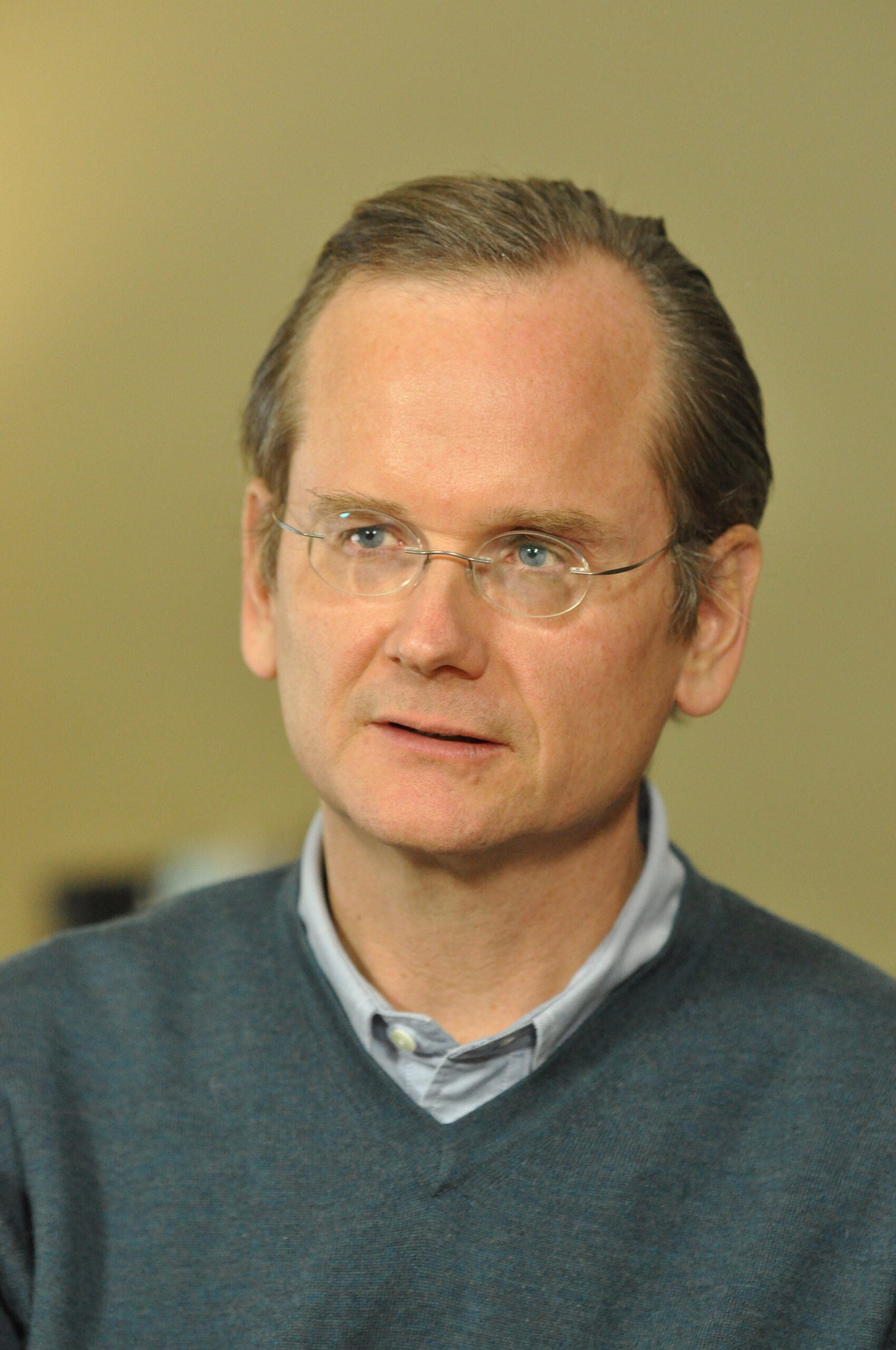The article “A Radical fix for the Republic” by Jonathan Shaw appears in the July-August 2012 issue of Harvard Magazine.
For a decade, Lawrence Lessig, a mild-seeming legal scholar, pursued the intricacies of updating American copyright law to reflect the rise of the digital era, the Internet, and new means of producing and disseminating texts, music, images, and software. Based first at Harvard, then Stanford, he co-founded organizations such as Creative Commons, a nonprofit that gives people legal tools to control use of their creative output, and argued that mashups (of songs or YouTube videos, for example) are culturally important products that (in some circumstances) can be legal under the principle of fair use.
He felt he was making progress: “The public was getting it. Businesses were getting it. Universities. Everybody had come to the recognition that ‘There is something wrong with the existing system,’ and that it needed to be updated—but we were making no progress in the context of policymakers.” At first, he was puzzled. But gradually he realized the problem lay in the sclerotic, gridlocked policymaking system itself—particularly in Congress. “We weren’t making any progress because money was so inherent and tied to decisions,” he says now. “The public domain had no lobbyists. The ideas of the public domain weren’t even on the table because there was no infrastructure for putting them there.”
As long as Congress remains in the thrall of “the economy of influence”—its members dependent on money to fund reelection campaigns—“no progress would be made on copyright or any other public-policy question,” he explains. “It wasn’t just esoteric areas like copyright, it was also fundamental issues like global warming, healthcare, or any number of others.”
That set Lessig off in a new direction—including an exploratory, aborted run for Congress and, ultimately, in 2008, a return to Harvard. He now directs the Safra Center for Ethics, serves as Furman professor of law and leadership at Harvard Law School, and investigates the American government and what ails it. His findings, recently published in Republic, Lost: How Money Corrupts Congress—and a Plan to Stop It, have led him to conclude that nothing less than overhauling the way elections are funded—involving a tool never before invoked in American democracy—is required. … Read the full article at HarvardMagazine.com »
